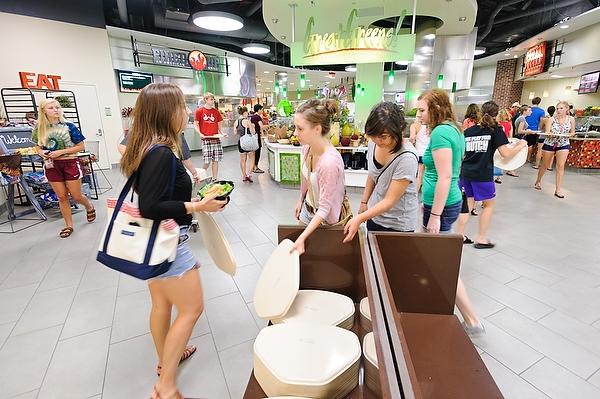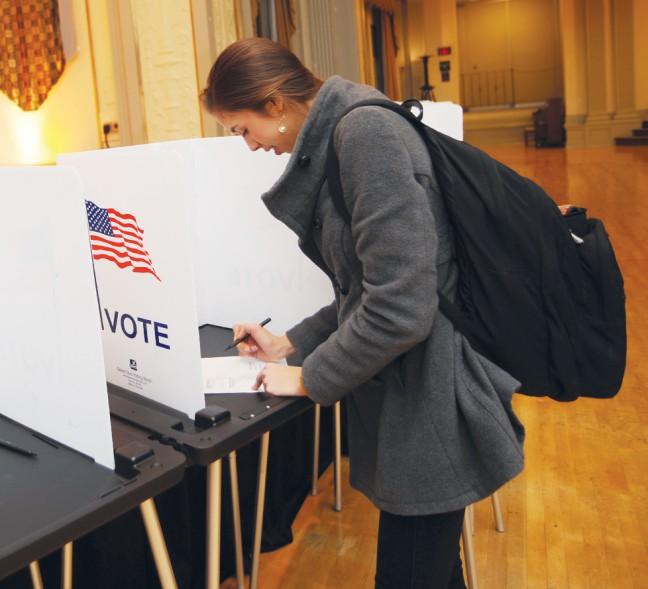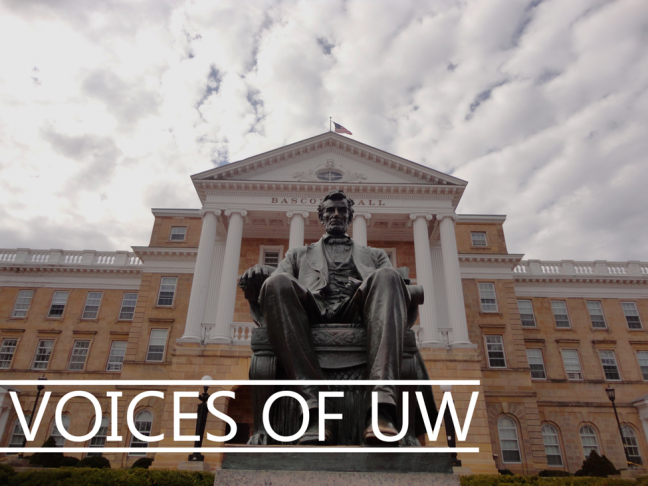The people who are touched by tragedy but separated by distance are a special breed. These people experience a certain type of torture, knowing that something has happened to someone they love and being unable to help the situation or find out information first-hand.
They have no one’s hand to hold, no one’s last words to cherish, no one to lead to survival. In the moments when chaos ensues on the site of disasters these people are frozen in many reaches of the globe. The explosions at the Boston Marathon were my initiation into this group of people.
Yesterday, the moments between finding out my sister had gone to support others at the Boston Marathon finish line and finding out she was alive were the longest moments of my life. It was only 27 minutes.
When I was told that bombs had gone off in Boston my brain shut itself off. It needed to, because if it hadn’t then all of the things that could happen to her would have flooded my veins and sucked the life straight out of me.
My little sister doesn’t only share blood with me; she shares a soul. For the longest time in our lives I couldn’t stand her because of how she reminded me of myself. Now I understand that loving her is part of loving myself. We cry together, we laugh together, we scream together (for good and bad reasons). We lead separate lives but there is an unending sense of balance knowing that she is there for me, and I for her. When she left for Boston, I was proud of her but definitely wished she wasn’t so far away.
I am especially wishing she wasn’t so far away today.
I could not bear to think the things logic was leading me. The life force rushed out my fingers and toes, going cold, determined to touch that corner of the her spirit that would tell me she was alive and well.
I called and left a message just in case she needed to hear my voice and be strong. “I heard what happened … I love you so much.” Then I called a dozen more times just in case she would pick up. I texted her just how much I loved her and how much I really needed her to call. I google-mapped myself silly; searching the supposed intersections where explosions occurred and the location of her dorm room, but I knew she wouldn’t be there.
She is the living personification of vitality and, of course, the finish line is where she would be, pushing and pulling the energy around her with a ridiculous smile. Finally, after 24 minutes I realized I had to call my mother. She had to know. It took me two minutes just to get the courage to dial. I couldn’t tell you what I was staring at that whole time.
It rang, a lot, and when my mother picked up I couldn’t get the words out fast enough.
“Did you hear about Boston”?
“Yes, she is okay.”
I am shattered in the best way possible. The blood and movement my body had rejected now rushed back inside me and immediately my tear ducts were on full force. My mother and I could barely speak on the phone we had so many sobs in our throats. These tears were both euphoria and belated anticipation of the worst. Letting out all 27 minutes of emotion and then two minutes of the most intense joy.
I definitely did not care who saw me cry. I knew how lucky I was, my soul had been spared that day.
I vow to never forget about April 15, 2013, not only for my sister’s community and those who have been hurt, but also for the loved ones in waiting. Those moments where my soul was searching for its other piece it could feel so many others searching too.
True solidarity in the frozen minutes, connected by the shared terror of ‘what could be.’ This is the worst feeling a person could ever be pressed to understand, which is why the minutes are frozen. We experience this shock because in that moment we are nowhere and no one and we are searching the debris of our whole lives and what could have been ahead. Only others in frozen time exist alongside us. Our faces cannot move because our souls are not within us, they are searching for our loves.
Solidarity in this similarity stops when we are released from our terror and told ‘what is.’ Some will grieve, and for that I wish I could lessen their pains. Some will experience hardship alongside their loves that are affected indefinitely. The lucky ones will get to rejoice.
Yet we are the secondary source, those in far away places who cannot be consoled by those we miss, and we experience pain too. We are lucky that we do not need to be afforded blood transfusions or organ donations, but we are unlucky in that our experiences are pushed aside. Our frozen selves are forced under hot water and we aren’t ready, so we feel burnt before we feel relief. We must support each other as we thaw because what we have experienced is not easy and rarely acknowledged.
I am acknowledging it.
And I will never forget it. I will forever feel solidarity for loved ones in hospital waiting rooms across the globe. I will understand the tried expressions of families who still have not heard. I will not assume that distance protects the heart like it does the skin. Those in physical need must be attended to first, but we must not forget about the trauma attached to the people who experienced frozen minutes, or hours, or days. I will never forget my time there.
The ache in my soul cannot be soothed until my sister is in my arms again. But I will smile; because calling my sister on April 16, 2013 will be the happiest moment I have experienced this far in my entire life.
Leeza Gold ([email protected]) is a junior majoring in gender and women’s studies and international studies with a focus on global political economy.











